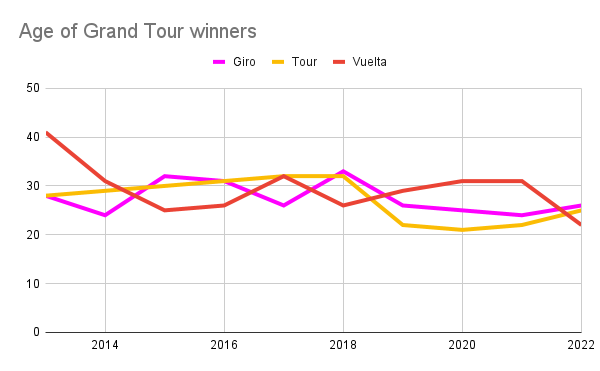Analysing the Vuelta a España's revolutionary podium and what it means for the future
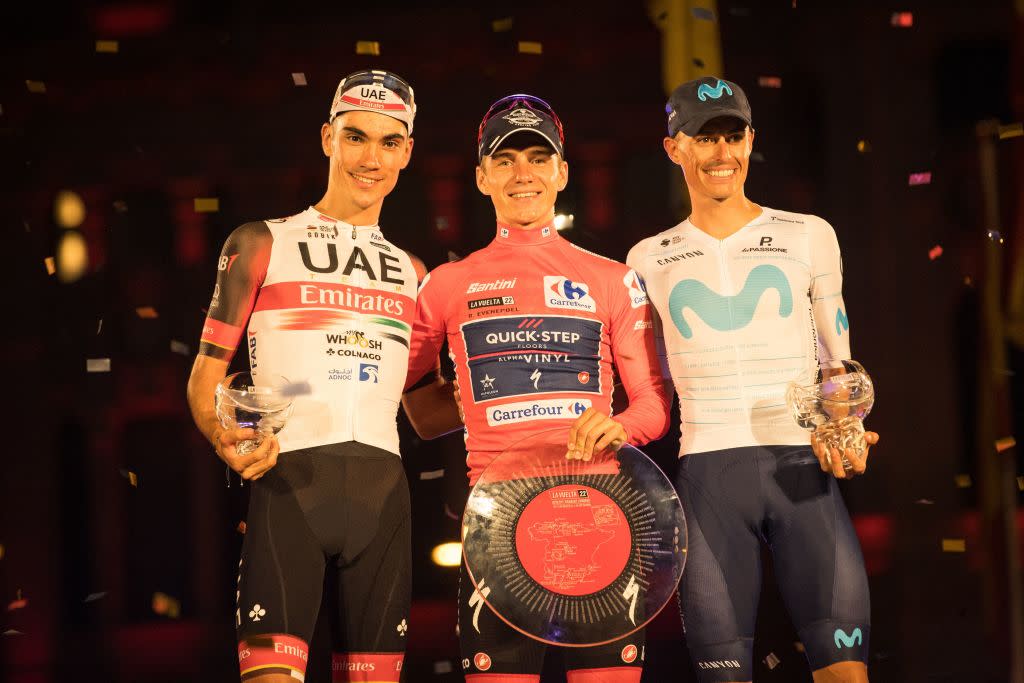
- Oops!Something went wrong.Please try again later.
- Oops!Something went wrong.Please try again later.
- Oops!Something went wrong.Please try again later.
This year's Vuelta a España turned out to be momentous in multiple different ways. Not only was it Belgium's first Grand Tour victory in 44 years, with Remco Evenepoel turning into even more of a superstar in his home country, it was a big race for Spain too. It was the country's best result at their race for years, and new hopes for the future emerged.
While Belgium loses its mind over Evenepoel of Quick-Step Alpha Vinyl, Spain finally has renewed hope in cycling, as Alejandro Valverde (Movistar) finally exits stage right.
Beyond this, however, the podium at the Vuelta was one of the youngest ever, as was the top five; the sport really is now in the hands of those born in the late 1990s and early 2000s.
It might not have been the most exciting Grand Tour in recent history, struggling to live up to the recent Tour de France, but it is still worth a look at the full results to fully understand what this means for now, and for the future.
The first teenage Grand Tour podium finisher since 1904
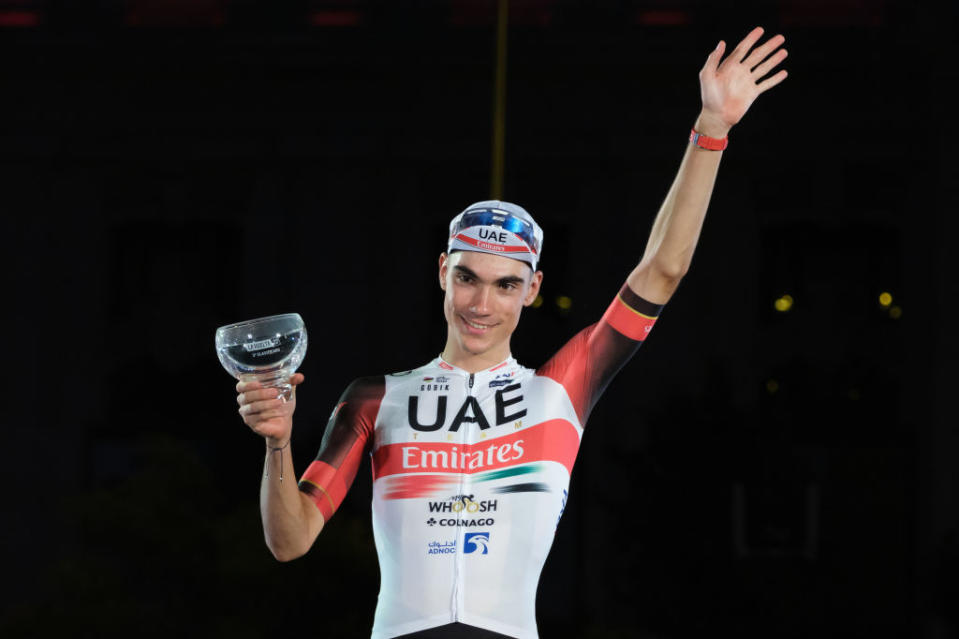
There was already hype around Juan Ayuso before this Vuelta a España, but now it feels like the hype can be fully justified. At the age of just 19, the Catalonian finished third at his first Grand Tour, a year younger than Tadej Pogačar did, at the same race, in 2019.
Ayuso is the only UAE Team Emirates rider with a longer contract than the Slovenian legend, and while he might not have the same all round talent, has the same promise. For Spain, this is huge; while it might be no guarantee of future performance, it looks like the 19-year-old is here to stay at the top of cycling.
Remember, he did all this after testing positive for Covid, which makes his ride all the more impressive. The last time a Grand Tour ended with a teenager on its podium was 1904, when Henri Cornet won the Tour de France. 118 years later, Ayuso will hope to have a better rest of a career than the Frenchman did, and if he keeps his form up, surely will.
Evenepoel might dominate the headlines out of Spain, and rightly so, with the 22-year-old racking up 36 wins so far in his short career, including this Vuelta with two stage wins, but the man three years his junior is bigger news in his home country.
Extraordinarily young GT top five
Thanks to the presence of Ayuso and Evenepoel, along with João Almeida (UAE Team Emirates), the Vuelta had the youngest Grand Tour top five of any race in the 21st century. That's 68 races where the average age of the top five was more than this Vuelta, which ended with a top 5 who on average aged 24.
With 22-year-old Thymen Arensman (DSM) and 21-year-old Carlos Rodríguez (Ineos Grenadiers) finishing just outside the top five, it could have been even lower. Obviously, this was helped by the absence of practically ancient 32-year-old Primož Roglič (Jumbo-Visma) from the final result, with Miguel Ángel López looking incredibly old in the top five at 28.
The graph below shows how the Vuelta has been trending younger in recent years, as has the Tour mostly, but this is younger than all so far. While this might be excused away because the final Grand Tour of the year is often used to blood younger riders, they don't often finish high up on the general classification. All in all, apart from this year's Giro d'Italia, the top of the GC seems to be getting younger.
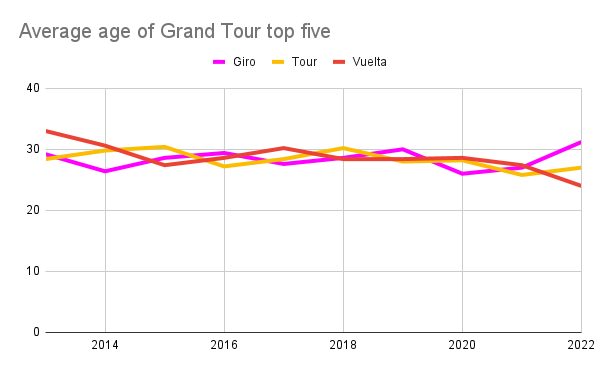
Spain is back! Alejandro Valverde can retire
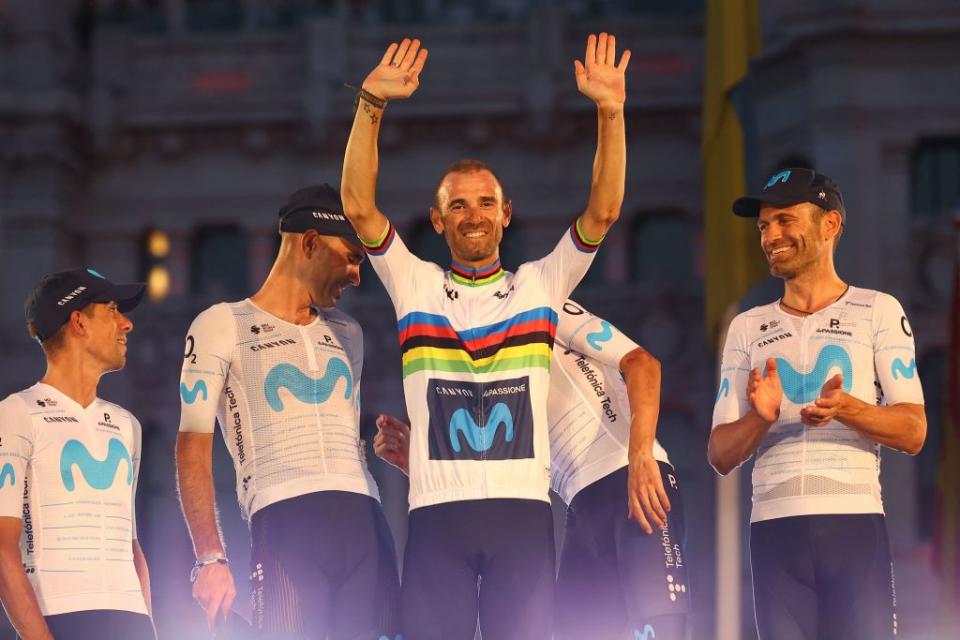
The three home countries of the Grand Tours have not often performed as well as they might have liked in recent years. It's well known that France has not won the Tour since 1985 and Bernard Hinault, but this year's Vuelta was the first time that two Spaniards finished on the podium of their Grand Tour since 2014.
2014 was also the last time that two Frenchman stood on the Tour's podium, and you have to go back even further, to 2010, to find the last time two Italians were on the Giro podium at the end of the race.
Enric Mas (Movistar) and Ayuso were obviously off the pace set by Evenepoel, but at least they were up there challenging, as was Carlos Rodríguez in seventh. Not since the glory days of Alejandro Valverde (Movistar), Alberto Contador and Joaquim Rodríguez has Spain had such options on the general classification. It's fortunate news for Valverde, who can finally retire knowing that Spanish cycling isn't completely in the doldrums.
Remco continues trend of young GT winners
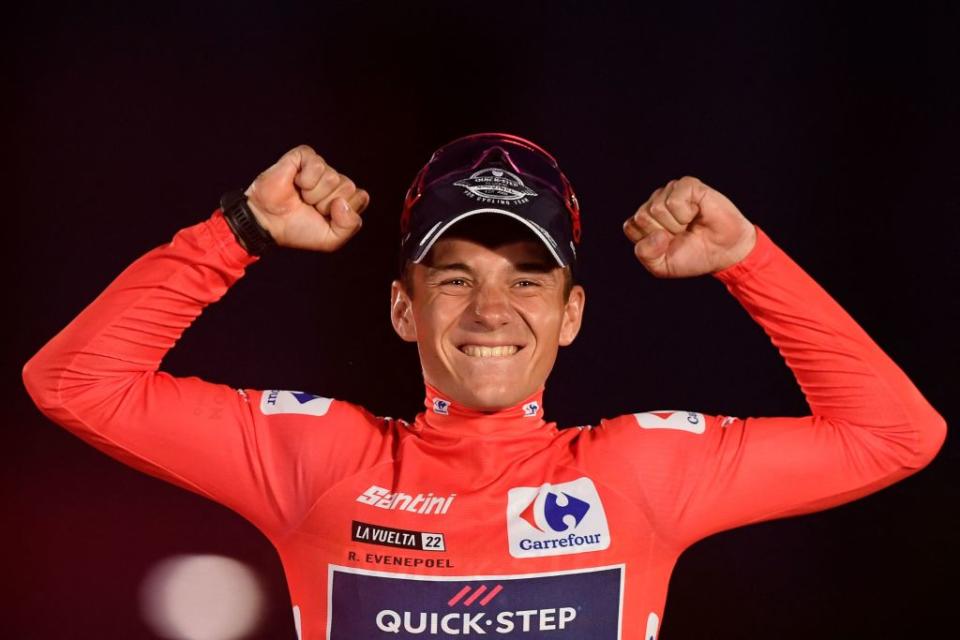
Remco Evenepoel might not be quite as young as Tadej Pogačar was when he won his first Grand Tour (22 vs 20), but the Belgian continues the trend of young Grand Tour winners in recent years.
As the graph below shows, the majority of Grand Tours in recent years have been won by those under 30, dramatically so in the case of the Tour de France, a trend started by then 22-year-old Egan Bernal in 2019.
All three Grand Tours this year have been won by riders winning their first three-week race, the first time this has happened since 2019. Also, all three winners have been under 30 for the first time since 2019. Further to this, however, all three winners - Jai Hindley (Bora-Hansgrohe), Jonas Vingegaard (Jumbo-Visma) and Evenepoel - are aged 26 or younger for the first time since 1970, a feat that has now happened just five times in Grand Tour history.
1935, 1936, 1958, 1967 and 1970 are the only previous occasions where the Giro, Vuelta, and Tour have all been won by riders aged 26 or younger. This is remarkable, and supports a theory that riders are getting better younger. The future is bright.
